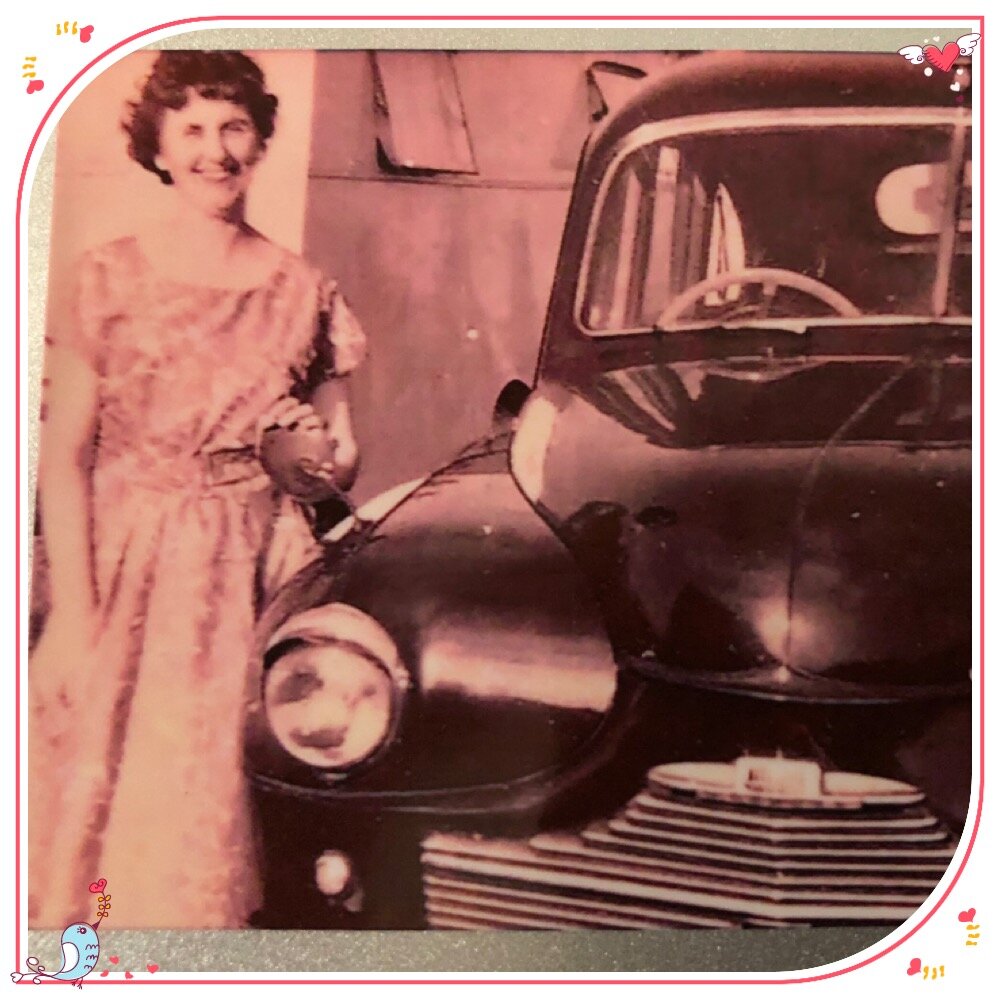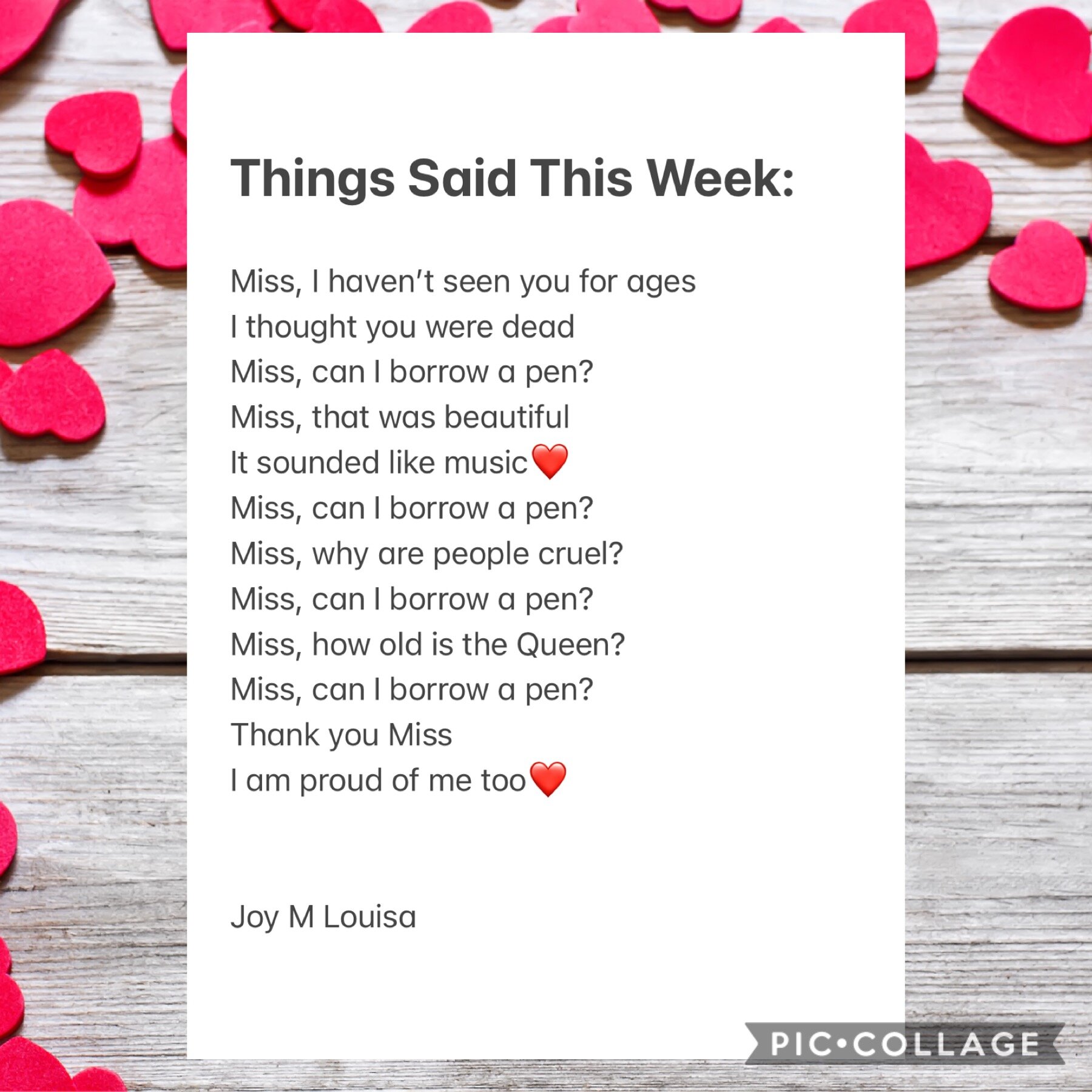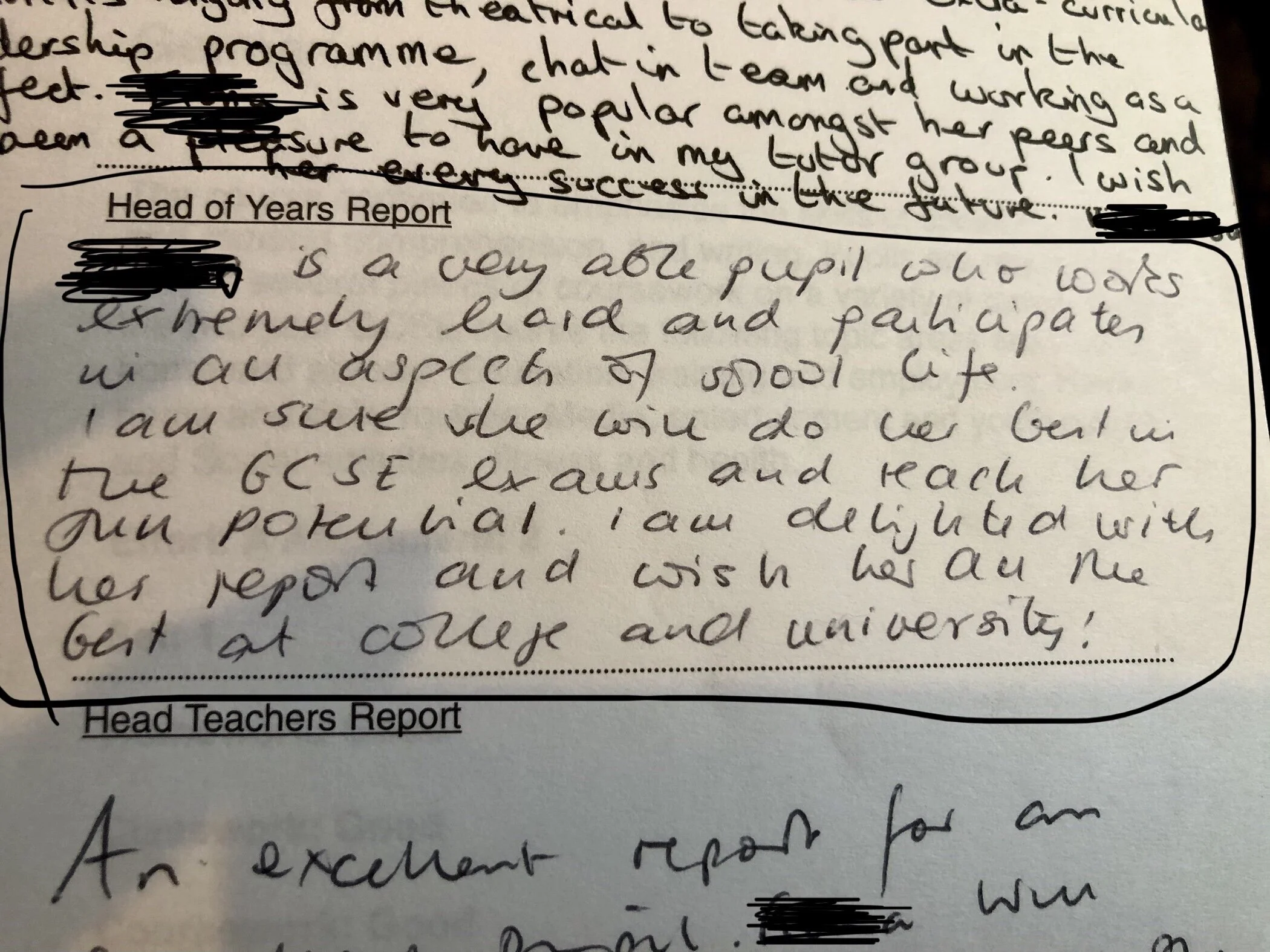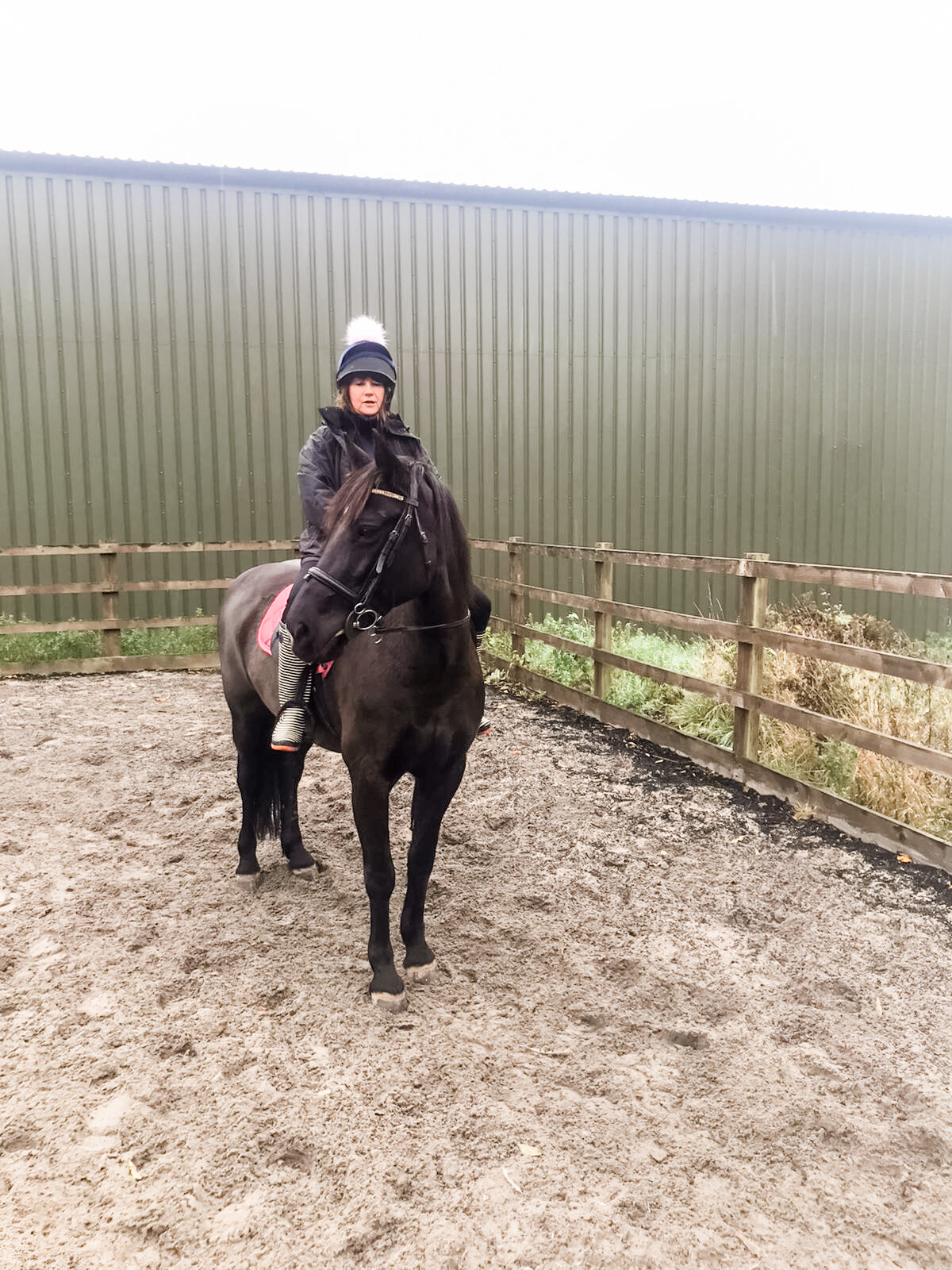My blog has always been about connections, some-times connecting those thoughts and feelings with others and sometimes it is about the people I meet.
I believe people come into our lives for a reason, I believe it isn’t chance, no matter how fleeting. I feel we connect, disconnect and reconnect, as we follow along life's path.
One of my favourite poets Benjamin Zephaniah, proclaims “People will always need people.” At this present time, his words resonate louder than ever.
This week saw a day when we remember the Six Million Jews who were slaughtered in the Holocaust of WWII along with those deemed different and imperfect.
My mother used to tell a story of a man who always walked by her house when she was a small child. My mother would sit on the window seat while reading or just looking out of the window, this gentleman would always wave and my mother would always wave back.
Whenever she saw him outside with my grandma he would greet them, addressing my mother as Rachel.
“Hello Rachel, how are you today?” My mother’s name was Margaret.
When my mother was old enough she asked my grandma why he always called her Rachel. My grandma explained that he had lost his entire family in the Holocaust. My grandma thought perhaps my mother looked like his little girl. My mother always answered to Rachel when they met, even when she grew up.
There are people we meet that stay in our hearts and those we are destined to meet. The story I am about to impart is one that is ingrained on my very soul.
Working in education allows me the chance to meet extraordinary people. Yet none have touched me or stayed with me as that of Zsuzanna Blau.
Before I began to teach, I was a Teacher’s Assistant and I was given the chance by my colleague and close friend to join our pupils in their History class to meet a Holocaust Survivor and hear her speak.
These pupils were in absolute silence and I could not have been prouder at the respect they showed this little elderly lady, a lady you would pass in the street without knowing what an incredible human being she really is.
She told her story with such humility it was difficult to hold my emotions inside.
Zsuzanna Blau was born in Hungary in 1930 she had one brother called Laci. Her father owned a bakery and she recalled a time when the Nazi soldiers came to dig up their back garden to look for evidence whilst claiming that her father and been murdering gentile children and baking them into bread.
At this time the wearing of a yellow Star of David to identify all Jews was compulsory.
Later a letter from the council was sent to ask all Jewish men to attend a meeting about the welfare of their families.
Zsuzanna said she remembered her father leaving their home that evening following the council’s order. She never saw him again.
Zsuzanna, her mother and brother were later taken to the death camp Auschwitz. Zsuzanna was fourteen years old and her brother just a little older.
She took a portable sewing machine with her as they were told they were being sent to work and she thought she would be able to make things.
As a survivor she told her story to Stephen Spielberg for the film ‘Schindler’s List’ and at the beginning of the film a little girl is seen clutching a sewing machine as they wade through the mud to the camp.
When they arrived they were immediately separated into groups. Both men and women were divided and she did not see her brother Laci again until after the war. Her mother was assigned to an older group of women and taken directly to the gas chambers.
Zsuzanna being young and healthy was set to work and then ten weeks later sent to an armaments factory in Germany. Where she was eventually liberated by the British army and where she was hospitalised for tuberculosis, typhoid and severe malnutrition.
During her time at Auschwitz she witnessed and was subjected to many atrocities. I remember her lifting her sleeve to show the tattoo that all received in these death camps, branded like human cattle.
I remember trying to hold back tears, a mission in which I failed.
She talked a little about life in the camp and each memory was recalled so cruelly and vividly. The story of her brother was for me, the one that haunts me the most.
She asked the boys in the room how old they were? Some were fifteen and some were already sixteen, she told them that her brother was around their age when he was put to work in the gas chambers. One of the jobs he was given, was to extract the gold fillings from the mouths and mounds of dead bodies.
When eventually she was reunited with her brother after many years, Zsuzanna tragically lost him once more as the unbearable guilt and horror of Auschwitz led him to take his own life.
Listening to this frail elderly lady speak with the courage of a lion made me feel every emotion possible but I also felt an overwhelming sense that there was something I was meant to do but I had no idea what that was.
Her words at the end of her speech made me feel as if I couldn’t breathe:
“ You will hear those who will say that this never happened, it is a lie. I am here to tell you that everything you heard was true. I know, I know, because I was there.”
“You must promise to tell our story, one day we will not be here, you must tell your children and your children’s children. This must never, ever, be allowed to happen again.”
Afterwards my friend and I escorted to her to another room as she was invited to lunch with the hierarchy of the school and we were given the chance to talk to her. She remarked that she liked a scarf my friend was wearing and asked where she had bought it from. I told her how humbled I was to meet her and how important it was for our students and for us all to hear from someone who was there, not just facts in a history book.
This is when destiny fell into place as she told me she wished she knew if this event in history was shared in German schools?
When I myself was at school I studied French not German, I dropped the second language (German) to study Drama.
However, we were given names of girls with similar ages in a school in France to become pen pals to improve our understanding of the language. Somehow, my letter was mixed up and I received a letter from a German girl called Beatrice.
So while waiting for my French pen pal (who actually never arrived) I continued to write to Beatrice, explaining that I wasn’t studying German so if she wanted to write to someone else I didn’t mind. By this time we had been getting to know each other so she said if it was alright by me, she would like to continue writing so that she could improve her English.
Beatrice and I became great pen pals and she stayed with me on an exchange trip, coming into my lessons at school despite the fact I wasn’t studying German. We have always kept in touch, she is now an Art teacher living with her family in Oslo.
In one of her letters she wrote how they had been learning about The Holocaust and that she felt “So very ashamed that people in her country did such a terrible thing.”
I knew then that this was why I had this very real and overwhelming feeling. I remember blurting out loudly “they do, they do!”
She said “You wonderful girl, you do not know what this means to me.” Then she hugged me, she did not cry but she hugged me. I cried and it really took all of my strength to stop.
This incredible woman called me wonderful, when I felt so very humbled in her presence and had been affected so deeply by her experience, her thoughts, and her words.
While she had lunch, my friend and I went into town as my friend had suggested we bought her the scarf she liked, it wasn’t expensive and my friend also bought her another gift. We both wanted to give her something back no matter how small.
She was overjoyed when we returned, “ You both are such beautiful girls” but she was wrong it was she, one of the most beautiful women we had ever met.
We still both talk about her to this day.
The courage, grace and dignity in which she told her story will stay with me forever and I will keep her promise as for as long as there is breath in my body.
Thank you for allowing me to share her story.




































